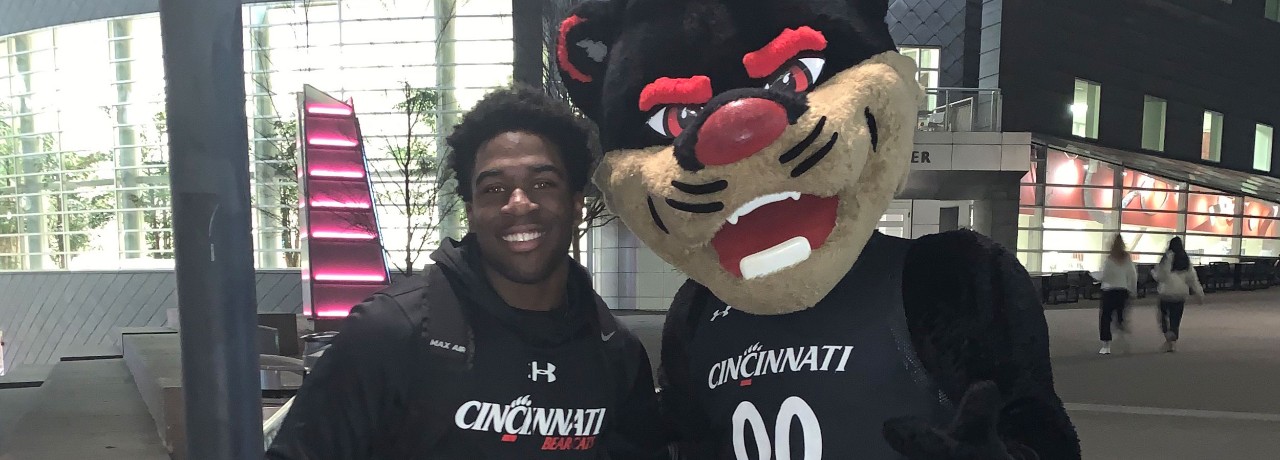
ELCE co-op to work toward more inclusive culture in healthcare fields
Healthcare diversity symposium will provide support for under-represented pre-health students
For Josh Nworie, discovering a passion for medicine started with some self-doubt, which ultimately put him on a path towards a career in healthcare that he hopes will inspire others.
When the first-year pre-med student first considered becoming a doctor, he didn’t think he was smart enough. An African American and second-generation immigrant, Nworie grew up obsessed with basketball. But in high school, he realized that he could take all the energy he was putting in on the court into his schoolwork instead. He began studying harder, and in his junior year, he achieved his first 4.0 grade point average.
“Growing up the son of Nigerian immigrants, I felt added pressure to choose certain careers, but I didn’t know many people who looked like me and wanted to work in healthcare,” Nworie said. “I kept thinking about becoming a doctor, but I didn’t think I was smart enough. I thought only really smart people could become doctors, and I didn’t think that was me.”
That changed the summer before his senior year when Nworie attended a national student conference on medicine and healthcare. There, Nworie met doctors, scientific researchers, medical school students and residents who talked about working in healthcare, but it was a surgeon who changed his mind. He taught Nworie how to suture and tie surgical knots, giving him the hands-on experience and coaching he needed.
“That’s when I realized that becoming a doctor was just a lot of hard work, and I knew I could do that," Nworie said.
Growing up the son of Nigerian immigrants, I felt added pressure to choose certain careers, but I didn’t know many people who looked like me and wanted to work in healthcare.
Co-op student Josh Nworie
As one of only a few pre-med students of color, Nworie said his first year at UC has been challenging. At times, he thought about giving up, but decided instead to work with other pre-med students to build a supportive community by becoming involved in organizations and events that foster inclusivity. Nworie began serving on the board of the Minority Association of Pre-Medical Students, and this summer and fall, he will co-op with associate professor Dr. Robin Selzer in UC’s Division of Experience-Based Learning and Career Education (ELCE) to plan the first-ever Next Lives Here: Healthcare Workforce Diversity Symposium online.
“We want to build a diverse healthcare workforce that includes students of color, first generation students, veterans, persons with disabilities, non-traditional students, and students from economically disadvantaged backgrounds,” said Dr. Selzer, who conceived of and led efforts to secure funding for the event, which is being planned to happen virtually this fall due to COVID-19. “This symposium is designed to break down silos and create campus- and community-wide opportunities to support under-represented students on pre-health pathways.”
Register to attend the Next Lives Here: Healthcare Workforce Diversity Symposium which will take place from 9 a.m.-4 p.m., on Wednesday, Nov. 4. Electronic resources will be provided from financial experts and pre-health admissions professionals, online lightning talks from health professionals will be delivered, and there will be raffles for standardized test prep, such as MCAT practice tests. While geared towards under-represented students, this event is free and open to anyone who supports efforts to increase diversity in the healthcare workforce.
The Next Lives Here: Healthcare Workforce Diversity Symposium is funded through a grant made possible by UC's Next Lives Here strategic Urban Health initiative.
Featured image at top: Josh Nworie with the Bearcat mascot in front of Tangeman University Center. Photo/Provided.
Inclusive excellence
More than simply a metric, inclusion is the driving force behind the University of Cincinnati’s strategic direction, Next Lives Here. By activating inclusion, the university amplifies its impact.
Urban Impact
At UC, we are working to solve urban-based health issues that lead us to a more sustainable future. UC is leading public urban universities into a new era of innovation and impact. Our faculty and students are saving lives, changing outcomes and bending the future in our city's direction.
Related Stories
It’s a mindset: Meet the visionaries redefining innovation at...
December 20, 2024
Innovation is being redefined by enterprising individuals at UC’s 1819 Innovation Hub. Meet the forward thinkers crafting the future of innovation from the heart of Cincinnati.
UC students well represented in this year’s Inno Under 25 class
December 20, 2024
Entrepreneurialism runs through the veins of University of Cincinnati students, as confirmed by the school’s strong representation in this year’s Inno Under 25 class.
UC professor Ephraim Gutmark elected to National Academy of...
December 20, 2024
Ephraim Gutmark, distinguished professor of aerospace engineering at the University of Cincinnati, was elected to the 2024 class of the prestigious National Academy of Inventors.
